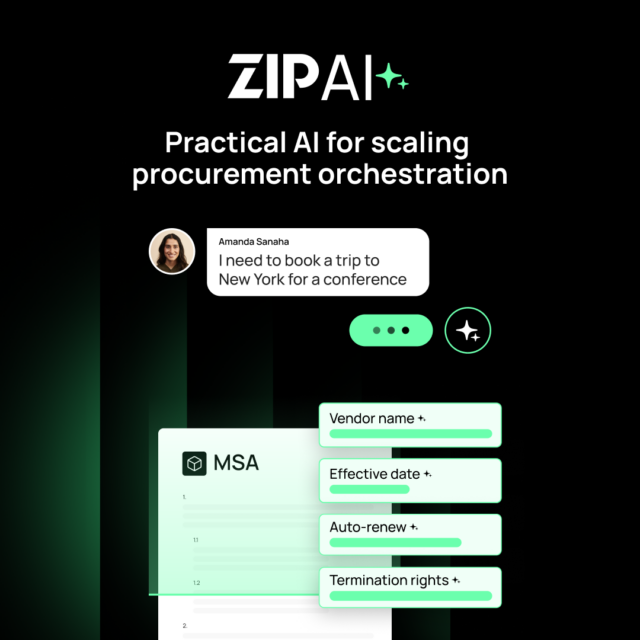Being a procurement manager has never been more challenging. You’ve had to become the ultimate multitasker: securing the best prices, finding reliable suppliers, and now steering the strategic decisions that will define your organisation’s future.
So, what sparked this shift in your role? You have Enterprise Resource Planning (ERP) systems—Oracle and SAP – to thank.
Transforming ERP is a generational challenge
These systems are vital for integrating and managing core business processes, yet their inflexibility and high maintenance costs present novel challenges to corporate IT everywhere. As businesses strive for greater agility and efficiency, procurement teams are central to transforming ERP systems from static, costly burdens into dynamic assets that boost business growth and operational efficiency.
As a procurement manager, you’re at the heart of transforming these ERP systems into flexible, valuable assets that not only support growth but also adapt to changing business landscapes. Your mission? To ensure these critical systems don’t become financial sinkholes, while ensuring that your systems keep pace with necessary innovation initiatives and evolving business demands. Every pound saved or cleverly renegotiated is funnelled back into your company, fuelling innovation and sharpening your competitive edge.
Navigating the complexities of ERP systems, you’ve likely considered third-party software support as a game-changer. It’s the buzz in the industry—a strategic move that promises innovation, functionality, and substantial cost savings. Partnering with a tech-savvy ally who intimately understands your systems and is dedicated to your company’s growth sounds like a winning formula, right?
But here’s the reality check: some businesses aren’t jumping on board with the idea of taking their ERP support and maintenance away from the vendor’s contract. And to make matters worse, ERP vendors themselves are actively discouraging it. They paint a bleak picture, highlighting concerns about security, compliance, and access to cutting-edge products.
So, when you’re advocating for third-party software support to drive innovation, save money, and ensure the stability, security, and compliance of your ERP systems, you need to be armed with the facts.
Managing risks while driving innovation
As a procurement manager, your role increasingly involves bridging the gap between IT departments and strategic business needs. IT teams often lean towards the safer route, preferring the predictability and stability of established ERP vendors like SAP and Oracle. Their concerns? Potential disruptions, security risks, and the upheaval of adopting a new support model.
However, this reliance on traditional vendor support introduces hidden dangers. It locks your organisation into the vendor’s ecosystem—tied to their upgrade schedules and captive to their pricing strategies—restricting your ability to innovate and adapt. This can divert your business from pursuing avenues that better align with its strategic ambitions.
Consider the situation with Birmingham City Council. The cost of the council’s move to a new Oracle ERP system was initially projected at £20 million but escalated to around £100 million due to unforeseen complexities and the need for a highly specialised software instance that ultimately could not be delivered effectively. This example highlights the significant risks and costs that can accrue when projects are not carefully managed and tailored to the specific needs of an organisation.
Adapt, don’t start over
More importantly, this case teaches us an important lesson: migration and large-scale projects are not the only paths to innovation. Sometimes, the key to adding strategic value lies in supporting and improving current systems rather than replacing them entirely. This approach not only avoids the risks of vendor lock-in but also enhances operational flexibility, allowing organisations to adapt more dynamically to changing needs.
How can your business achieve this? With third-party software support. This alternative doesn’t just mitigate risks—it propels innovation. Third-party providers maintain and optimise both current and legacy systems more effectively. This prevents the disruptive upgrade cycles imposed by traditional vendors. They specialise in custom solutions tailored to the unique needs of your business. By doing so, they enhance system performance, and ensuring ERP systems are responsive to your strategic goals.
Moreover, third-party support addresses interoperability issues and customisations often overlooked by standard vendor support. This reduces operational disruptions and offers a more stable transition experience during system upgrades. Financially, opting for third-party support results in substantial cost savings in both the short and longer terms as these services come at a more competitive price than traditional vendor support contracts, and also allow your organisation to avoid costly, non-essential upgrades and migrations especially as systems age. These savings can be redirected towards strategic initiatives, enhancing your competitive edge.
Convincing your C-suite to transition to third-party support involves shifting the narrative around risk. It’s about highlighting that the real danger lies in sticking with a roadmap from a vendor which might not match the company’s direction – or ambitions. The potential for stifling innovation and operational agility is a significant threat.
Tackling security and compliance as a CPO
Security and compliance are critical, and they are often cited as reasons to remain with a vendor’s in-house support. Yet as vendors shift focus to newer software, support for older systems diminishes. This exposes businesses to increased cybersecurity risks and regulatory compliance challenges. Third-party software support can help with this, too.
Third-party providers are not limited by a product lifecycle. Their priority is to secure and maintain the ERP systems you rely on, regardless of their age. This proactive approach ensures that your systems stay up to date with the latest security measures. Not only that, but is also aligns them with evolving compliance standards without forcing costly upgrades.
By choosing third-party support, you ensure your ERP systems are secure, compliant, and perfectly aligned with both current regulatory demands and your organisation’s long-term strategic objectives.
For procurement managers ready to advocate for third-party software support, the key is demonstrating how this option turns perceived risks into strategic advantages.
This move can safeguard your company’s future, ensuring that your ERP systems evolve in line with your business needs. Not just according to a vendor’s agenda.











